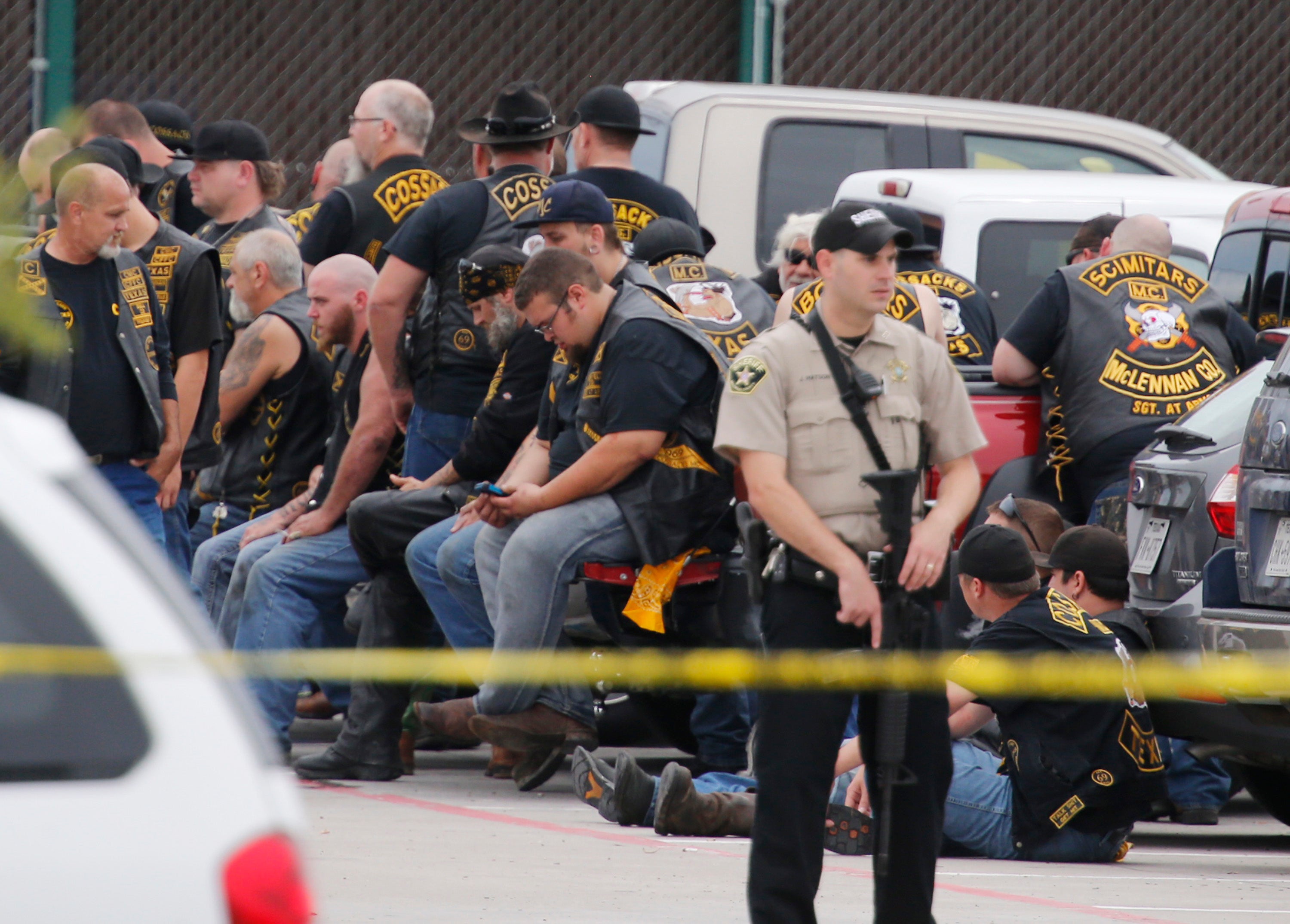Waco biker gang shootout: Social media says coverage of Texas shooting reveals racial bias
Twitter erupts comparing coverage of Waco to Baltimore and Ferguson

Your support helps us to tell the story
From reproductive rights to climate change to Big Tech, The Independent is on the ground when the story is developing. Whether it's investigating the financials of Elon Musk's pro-Trump PAC or producing our latest documentary, 'The A Word', which shines a light on the American women fighting for reproductive rights, we know how important it is to parse out the facts from the messaging.
At such a critical moment in US history, we need reporters on the ground. Your donation allows us to keep sending journalists to speak to both sides of the story.
The Independent is trusted by Americans across the entire political spectrum. And unlike many other quality news outlets, we choose not to lock Americans out of our reporting and analysis with paywalls. We believe quality journalism should be available to everyone, paid for by those who can afford it.
Your support makes all the difference.People are raising questions about the media coverage of a gang shootout in Waco - saying that the issue of race was not included, unlike in recent events in Baltimore and Ferguson.
A rival gang shootout left nine dead and 18 seriously injured at a restaurant in Waco, Texas on Sunday.
More than 170 arrests were made and the New York Times reported that law enforcement sources called it “the worst violence in the Waco area since the siege on the Branch Davidian compound in 1993 that left 86 people dead.”
However, social media users, columnists, activists and comedians, are up in arms because the media has reported the devastating incident as hard news without extended commentary on gun control, white violence or parental issues.
“If you've never understood the intersection of media bias/race and policing re: whiteness, watch the Twin Peaks Shooting unfold,” 29-year-old activist DeRay Mckesson wrote on Twitter.
Many say coverage of the unrest in Baltimore and Ferguson was exploited by pundits who embed onto racial stereotypes against blacks such as fatherlessness, poverty and indictments against black leaders. However, when violence within white communities are treated as isolated incidents.
Jenée Desmond-Harris, a Vox writer, explained that — perhaps unconsciously —observers speak and write differently when black people are involved and more often than not, these biases have deadly consequences.
“That's because hand-wringing over “black-on-black” violence is frustratingly common — especially as an attempt to derail the focus on high profile stories of police-involved deaths of black people,” she wrote.
“It's finally catching on that focusing on black-on-black crime in response to criticism of law enforcement practices doesn't make sense, but the absence of any similar refrain in cases in which the suspected criminals are white is a reminder of how the idea of intraracial crime is almost exclusively — and unfairly — brought up when black people are involved.”
Ms Desmond-Harris concluded that understanding the criticism in the media’s portrayal of the devastation in Waco requires one to see the juxtaposition when people of colour are involved.
“The message is not that the conversation about Waco should be overblown, hypercritical of an entire culture, or full of racial subtext. It's despair over the sense that if the gang members were black, it almost certainly would be.”
Join our commenting forum
Join thought-provoking conversations, follow other Independent readers and see their replies
Comments